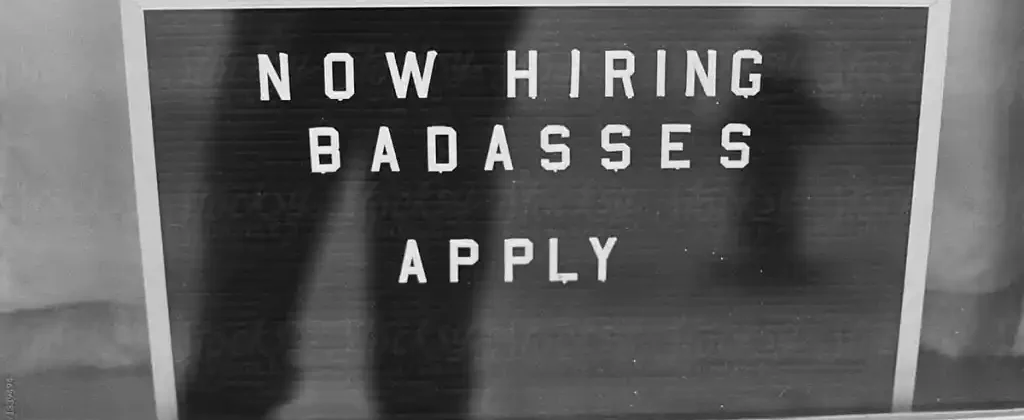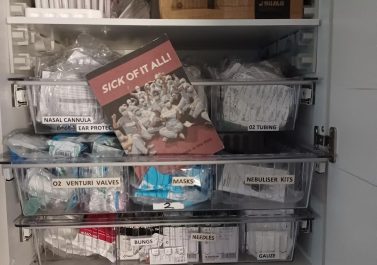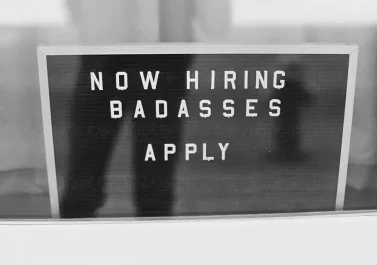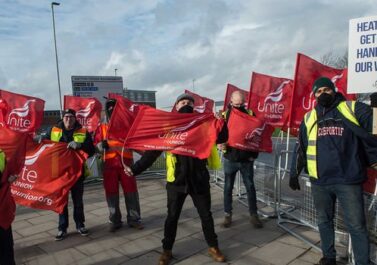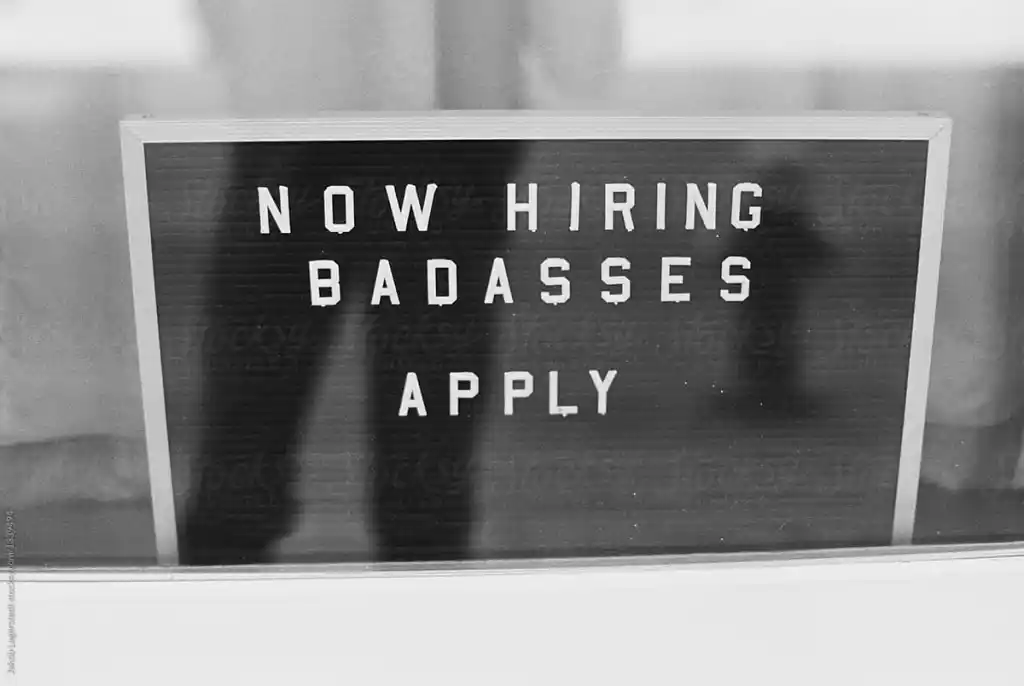
This is a longer version of a newsletter we’ll be distributing in the local area. If you want some copies drop us a line on the contact details below!
Cargo worker death at Terminal 3
Interesting elsewhere (struggles abroad)
Who’s going to pay for the cost of living crisis?!
The ending of COVID restrictions and the opening up of the economy will have given some local workers a glimmer of hope that two years of job insecurity and attacks on contracts might, at last, be coming to an end. But, as our system regularly does, a new set of crises and conundrums have been thrown up to test our resolve and disturb what little peace we were enjoying. Rising inflation is rapidly cutting into our spending power and creating a cost of living crisis.
Long before Russia’s invasion of Ukraine, increased energy, food and fuel prices, caused by a number of factors (post lockdown surging demand, supply chain issues etc.) were applying pressure to workers. Aside from the terrible human cost of the war in Ukraine, it is also now making a large contribution to snowballing global inflation figures and causing shortages in some poorer regions. The situation doesn’t show signs of getting any better soon, with some predictions putting UK inflation at 10% by the end of the year. On a national level wages are not keeping pace with inflation, only rising on average at around 4%.
This is at the same time as we are seeing a shortage of workers across a great many sectors. Historically, a shortage of workers is good news, as workers are in a stronger position to demand higher wages. Workers have also been through a pandemic in which we were regularly told that we are “key workers,” worthy of praise and admiration and in which we were able to more clearly see the dividing lines between essential work and bullshit jobs. The fact that wages are increasing so slowly, at a time like this, is a sign that, for the most part, workers aren’t organised enough to demand more. Why is this? How has this dynamic been panning out in our area? And what can we do to change it?
Local Commotion!
From January onwards, a number of groups of workers around Heathrow have balloted to strike over pay. Taken as a single workplace, over the last few months, Heathrow has probably seen more official pay disputes than any other in the UK. However, no strikes have materialised from any of these ballots. In a way, it’s a shame, as strikes are good opportunities for workers from the local area to come together, make connections, offer support and learn valuable lessons for future fights. Often though, the threat of strike is enough to win more.
At Mercedes-Benz in West Drayton and Brentford, technicians voted to strike over pay. There were reports that the company was attempting to divide the workforce by offering better pay to workers on newer contracts not covered by the union. A better offer came, that workers accepted, and the strike was called off.
We have spoken to bus drivers while leafleting, who were in the process of rejecting insulting pay offers and balloting to strike.
Closer to the runways, ground handling staff and re-fuelling drivers with Menzies balloted to strike back in January. Scheduled strike days in February were called off after the company caved in, offering 6% on pay with £3000 lump sum payments to refuelers and 7% to ground handling staff.
HGV drivers at aviation catering company DO&CO threatened to strike in early March and won a 14% pay rise for some of its newer drivers and 6% for drivers on the older contracts.
Baggage technicians working for Vanderlande nearly went on strike over pay at the start of April, but then that was also called off when a better deal was offered for members to vote on.
As we write, cargo handlers at WFS are voting on whether to strike after rejecting the company’s dismal offer.
Companies like ground handling company Dnata and British Airways are attempting to buy peace among their workforce. Dnata offered a 10% pay rise without the threat of strike, which was accepted. While British Airways has offered three “bonus” payments over the remaining year, equalling 10% in total and the promise of actual pay talks in January 2023. It is a substantial amount, but as workers know, with inflation so high and taking into account pay and holiday that were lost during the pandemic, it is not so spectacular. As during the pandemic, at BA, different departments are doing their own deals. And like then, this makes a unified response very difficult. Engineering have accepted the offer, while other departments are not so sure.
Where the workers at?!
Labour shortages in aviation have been making headlines with hundreds of flights being cancelled, long queues at airports and airline’s raising prices and reducing schedules in an effort to cope with demand. Heathrow have said they need to recruit 12,000 new staff to manage through the summer and British Airways have been offering £1000 sign-on fees and other benefits for new starters with the right paperwork. The situation is so bad that BA can’t help but upset the staff they’ve already got, by forcing them (aircraft cleaners and others) into training as stand-in baggage handlers.
The shortages shouldn’t be surprising given that, globally, 2.3 million aviation workers were thrown onto the scrapheap, along with a great many other jobs dependent on the industry. The job losses were blatantly unnecessary and from the company’s point of view, clearly shortsighted. As angry as the companies decisions have made us and despite the terrible suffering they have caused, it is enjoyable to watch the firms struggle to get flights off the ground because of the staff shortages that workers predicted. The companies were ruthless in their efforts to cash in on the pandemic by slashing numbers, in the expectation that when things improved, they would just be able to rehire them on worse terms and conditions. But workers are not coming back as fast as the companies need. Partly probably because they don’t see the work as very secure and also simply because they’ve retired or found jobs elsewhere. No doubt though, businesses will eventually attract enough staff to get by. There is a window of opportunity for workers at the moment to use their increased bargaining power to press for better pay and conditions across the board. Looking narrowly at the disputes above, it may look to some as though that is what’s happening. However, almost all of the inflation beating pay rises involve HGV drivers or cargo handlers, with the main spoils going to HGV drivers. This is the story across the UK. While relatively small groups of workers with more clout are getting decent deals, most workers alongside them are continuing to stagnate or decline. At the DO&CO dispute for example, we spoke to a worker that wasn’t actually aware there was nearly a strike at their workplace. It’s only one example but it’s symptomatic of a problem with all our disputes being too closed off and our workforce’s too divided. HGV drivers especially appear to be able to demand large increases due to the shortages.
But what happens when the jobs have been filled and they’re no longer in such high demand? If we could start combining our strength rather than fencing ourselves off into our own departments we could really start demanding more for all of us, especially those on the least. Everyone would benefit from it and because we’ve not been greedy with our bargaining power and shared it about, we would be more likely to fight together when the next opportunity for management to attack us comes along.
The next attack might not be too far off. The current boom in leisure travel is by no means guaranteed to continue. With the cost of living crisis biting and the possibility the economy going into recession this year, demand for flights may again drop off. And workers around Heathrow will again be expected to pay the price, with our jobs, pay and conditions. That is unless we can get our act together. And it has to start now and continue through the bad times and “good.” Always looking for little ways that we can help our workmates, in and out of work and building up the sense of togetherness that it takes to defend ourselves when the bosses come after us and to go on the offensive when their backs are against the wall. We have to assess our workplaces, work out where our power is and potentially could be. Plan, organise and strategise. Just like the bosses do, but not for profits for shareholders but for ourselves and our environment. Right now, aviation cargo workers have a lot of power but that could change as cheaper supply chains become more stable again and leisure travel becomes more dominant. As offices begin to fill up again, while people are still concerned about COVID, cleaners and maintenance workers could become more important. And so on…. At Heathrow Solidarity Network we are doing our bit in reaching out to as many people as we can. Offering support to workers, not because you already agree with us about everything or because it will help our organisation grow, but because as workers, we think helping each other is the only way we can truly get to the root of our problems and take control of our daily lives.
Expansion – why?!
It’s hard to believe that after the massive drop in demand caused by the pandemic anyone would suggest that what Heathrow needs now is expansion. Especially given that, because airports force airlines to put planes in the air to keep their slots, nearly 5000 near empty “ghost flights” have taken off from Heathrow since the start of COVID. On top of all this, no climate scientist worthy of the name thinks we have any airport expansion left in our “carbon budget.” Flights will have to be reduced and rich boy, yuppie, frequent flyers will have to be a thing of the past. What do we need a new runway for exactly?! So, come the next climate breakdown induced pandemic, the one plane landing each hour will have a 3rd runway to choose from? So we can have 7500 empty flights leaving the airport rather than only 5000?! Still, powerful players in the airport game won’t drop it. The promise of big money has a strange habit of destroying our brains’ ability to process basic logic.
As workers we need to start putting our foot down on this issue. A good place to start might be forcing unions to withdraw their support for the 3rd runway. It’s getting embarrassing for them. Even local Conservative councils are changing their tune and coming out against the plans. Pressuring unions to do the same would be a step in the right direction. If you feel the same way, get in touch.
People that live or work around Heathrow can all vouch for the fact that one of the nicest side effects of the pandemic was the cleaner air and quieter skies. If flights do have to be reduced it isn’t such a bad thing. But in our society, it does throw up a problem. What do we do if planes aren’t taking off? We’ve seen what happens if planes stop flying and workers aren’t organised and unified enough to resist. The bosses sack us and attack our pay and conditions. But, there are alternatives. Even during the bleakest part of the pandemic the airport was still an extremely significant site. Air freight demand rose sharply due to disruption to cheaper forms of transportation and thousands of tons of PPE were arriving from China and elsewhere. Although greatly reduced passenger flights were still taking off. If workers acted together we could have stopped the jobs massacre, protected our pay and reduced our working hours. Likewise, when it comes to organising the reduction of aviation, we have sway and political power that we can exercise to demand that the costs of saving the planet are not forced onto workers. In fact, we could go further and come together to reorganise the local economy, so we might step away from our dependence on our ever expanding airport. The airport will likely always be there and workers will always be able to create meaningful, productive work in servicing it. But we don’t have to be slaves to it. When we discover that its continued growth is having serious detrimental effects on our local and global community we shouldn’t feel blackmailed into choosing between our jobs or the environment. We should use our very real collective power to take control of our workplaces and decide how we want to run them. At the very least, it’s well within our power to demand that local workers have extensive access to retraining opportunities in greener energy, transportation and manufacturing industries.
Luton and Bristol airports are also facing plans for unnecessary and dangerous expansion. Workers combining across airports and borders is essential to permanently be able to push back against the big money interests lobbying for expansion.
Cargo worker death at Terminal 3
On February 23rd, a cargo worker in their 70’s, employed by Dnata was crushed in a high loader and tragically died. It’s extremely sad and highlights how dangerous working at the airport can be. With staff shortages and workload pressures likely to be around for a while at Heathrow, we will need to make sure we’re not being put at risk.
Over the last 6 months or so, workers in the port of Piraeus, Greece have been demonstrating and striking against unsafe working conditions. The port is extremely busy, taking huge amounts of mega container ships. In October 2021 a workers death led to a 7 day strike and a list of demands including greater staff numbers, reduced hours and a health and safety committee with workers participation. Similar to the situation at Heathrow, privatisation and outsourcing have led to a fragmentation of the workforce and a reduction in workers power and influence. Safety is increasingly being sacrificed to profit and productivity. Because of the workers continued struggle the port companies are making concessions and giving in to some their demands. Workers shouldn’t be dying on the job in this day and age.
Interesting elsewhere!
Air Traffic Controllers in Poland
Air Traffic Controllers in Poland have been refusing to accept pay cuts and unsafe working conditions and were threatening to resign en masse. The resignations were going to cause major disruption to hundreds of European flights, as airspace is already restricted due to war in Ukraine. A deal has now been struck.
Baggage handlers in Amsterdam
On 23rd April 150 KLM baggage handlers walked off the job for 3 hours without warning after being told some of their jobs would be outsourced. The threat of outsourcing was apparently the final straw as workers were already pissed off with pay and conditions. Police had to shut the road as queues were tailing out of the terminal and several days on the airline still hadn’t recovered. That’s workers’ power. While official strikes can be effective, companies usually have the time to prepare and take the sting out of the action. A wildcat strike- when workers just walk off the job, independently of the union or company- doesn’t give the company time to prepare and is way more effective. Which might be a reason for them being illegal in the UK. KLM was still having problems getting baggage to customers days after the strike.
Luton
In January Luton passenger assistance workers secured a decent pay rise after two lots of strike action. Striking gets the goods. The front of house workers got 4.3% and HGV drivers 20%. But could HGV drivers bargaining power have been used to get more for different sets of workers?
In April, after repeated payroll problems, Luton baggage handlers and check-in staff won 13 weeks sick pay and £100 compensation if their pay is late. All from just the threat of strike action.
Against Offshore Detention
Standing up to the Rwanda Deal and the British Border Regime
This article was written by our friends at the West London Resistance Collective!
This month saw the announcement of the British government’s new immigration scheme in which asylum seekers are to be sent to Rwanda while their claims are processed. It is essential that we recognise this move towards offshore detention for what it is: an expansion of the criminalisation of migrants and refugees and an attempt to make the realities of global inequality invisible to the British public.
The £120 million plan has been put forward as a deterrent to unsafe channel crossings and against human trafficking and smuggling, and is a clear response to poll results criticising Johnson and Patel’s ability to limit channel crossings. While the Tories have touted the plan as “a global first”, setting a “new international standard”, offshore detention is nothing new. The plan is influenced by Australia’s ‘Pacific Solution’ of migrant and refugee detention on nearby former British and Australian colonies like Manus Island and Nauru, where harsh conditions abound, causing suicide attempts from children as young as seven years old. Israel has attempted to set up agreements to “process” asylum seekers in Rwanda and Uganda, and the EU and the US have invested vast amounts in border externalisation programmes, funding detention and processing centres throughout Africa, the Caribbean, Latin America, and beyond.
We need to acknowledge this proposal for what it is: a further criminalisation of anyone trying to enter the UK, a ramping up of the border and incarceration regime. We must make clear that arguments about deterring migrants or limiting human trafficking are hollow. Making existing routes of migration more difficult invariably forces those seeking to migrate into more dangerous routes. When Boris Johnson states “our compassion may be infinite but our capacity to help people is not”, we must shine a light on both sides of the lie – British treatment of refugees and migrants has never been compassionate, and it is highly limited in practice: the UK’s total of 126,720 refugees pales in comparison to states like Turkey, Pakistan, Uganda, and Sudan, Turkey hosting 3.7 million, the others hosting over a million each.
Narratives around limited capacity sustain a politics of austerity. They enforce a divide-and-rule tactic around those who “deserve” to be here and those who don’t. We must recognise how this undermines worker solidarity and obscures the history of British exploitation at home and abroad. Our resistance to the border regime must centre the rights and humanity of all regardless of status, and we must reject punishment, detention, and division as solutions to global social and economic problems.
Immigration detention, like all incarceration, disappears people, not problems. By fighting against immigration detention, immigration raids, and calling for an end to the criminalisation of migrants and an end to the border, we emphasise global worker solidarity against capitalist exploitation. We must make it emphatically clear that the enemy doesn’t arrive by boat, but by limousine.
The West London Resistance Collective seeks to build resistance to immigration enforcement and work with others to build relationships and awareness of our rights and protect our communities. Find us on Twitter @WestLdnAntiRaid or email us at westlondonresistancecollective@gmail.com to get involved.
Our Solidarity
With labour shortages in aviation causing mayhem in and around airports all over the globe, customers and curious onlookers will be wondering what has gone wrong, who is to blame and what can be done.
The International Air Transport Association (IATA) is the global aviation industry’s bootlickers. Their stated mission is to “represent, lead and serve the aviation industry.” And after that garbled mess of confusion, they inform us that they wish to “improve understanding of the air transport industry among decision makers….” So what words of wisdom do they have at this time of post-pandemic severe staffing shortages in aviation? Boot Licker in Chief at IATA and former British Airways CEO Willie Walsh informs us that the shortages are caused by factors “completely out of the airports’ and airlines’ control.” Not ‘slightly’ or even ‘largely’ but “completely” out of their control. The IATA is lucky the “decision makers” in the media and government that they are seeking to “improve the understanding” of, are so gullible and passive. Workers are not so easily duped. The IATA blames security clearance checks for the backlog in new starters getting to the frontline. Like security checks are a new thing that airlines couldn’t possibly have predicted!“ In most cases you can’t even start training these people until they have security clearance” he adds. No….No you can’t Willie. It’s not exactly rocket science but it’s obviously beyond the understanding of your average corporate CEO.
Another of the IATA’s mission statements is to advocate “for the interests of airlines across the globe, we challenge unreasonable rules and charges, hold regulators and governments to account, and strive for sensible regulation.” It appears they are pretty good at this as no sooner had Walsh uttered these remarks than the faithful lapdogs in government came and delivered his slippers for him. On 29th April, Transport Secretary Grant Shapps tweeted “I am committed to supporting the aviation industry as it bounces back from the pandemic. That’s why I’m changing the law so it has more flexibility when training new employees. This won’t compromise safety, but will help to fill vacancies more quickly to meet demand.” The speed with which governments are willing to change laws when corporations are in trouble was not matched when workers were being sacked en masse during the pandemic. “Fire and rehire” tactics by bosses would be relatively easy to outlaw but still hasn’t been.
The point is, the IATA knows why the shortages are happening but out of solidarity for their class, they can’t point out the obvious- that airlines got carried away in their blood-thirsty attacks on workers during the pandemic and customers and companies are now suffering because of it.
We have to start showing the same unswerving solidarity for our class, if we’re to stop atrocious mass sackings like at P&O happening again. 800 workers just sacked without a shred of consideration for the law because they know they’ll get away with, and that we haven’t got the solidarity needed to stop them. There were glimmers of what could be. Reports of some agency workers employed to replace the sacked workers walked off the job and dockworkers in Rotterdam refused to load P&O ships. But blockades in the UK were insufficient and collective direct action has quickly given way to individual legal challenges. Likewise, with the war in Ukraine, pockets of workers have shown what could be done to help workers elsewhere. Dockworkers in Liverpool and Kent refused to unload Russian oil or gas from ships entering their ports. Yet the types of mass actions that helped to end the bloodshed of WW1 look a long way off.
The work we do sustains and reproduces the system that mugs us off everyday. Whether it’s meagre pay rises, energy price hikes, raised taxes, endless wars or ridiculous rents, the work we do keeps the whole thing afloat. Voting for this or that party or hoping a government changes the law for us isn’t enough. We don’t need to build partnerships with the bosses or politicians. By building the power as workers, to choose how and when we work, we can fight on our own terms and start tackling some of our biggest issues, in solidarity with each other.
Heathrow Solidarity Network have been out leafleting the local area. Calls are coming in and we’re fighting with workers having problems with landlords and issues at work. We’re also hoping to take on the “hostile environment” by teaming up with the West London Resistance Collective to help out those with migrants rights issues.
If you would like to contribute to our future newsletters or get involved with our network, get in touch!
Email- heathrowworkers@protonmail.com
Call or text- 07518 573068
Facebook- Heathrow Solidarity Network
Twitter- @heathrowworkers
